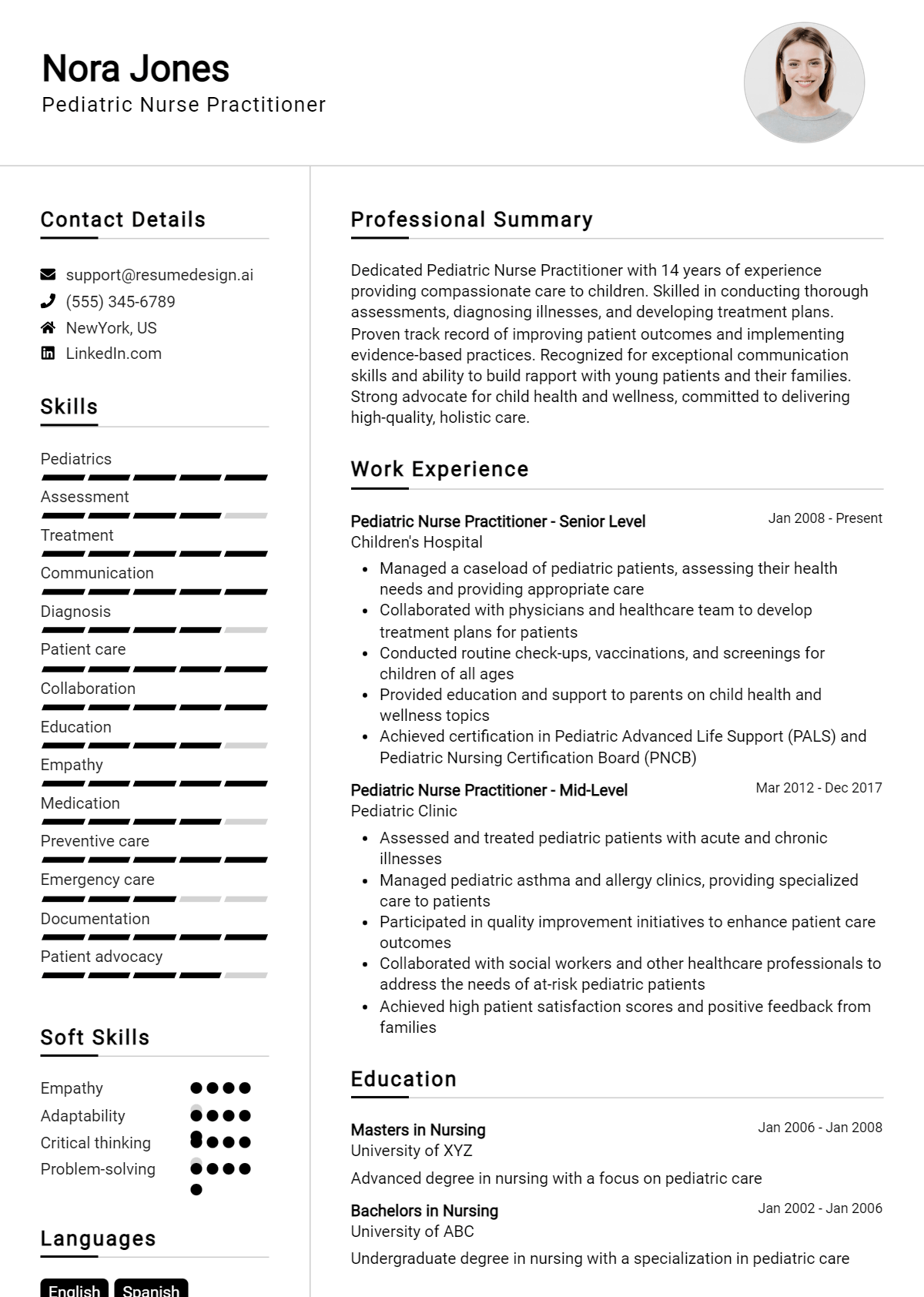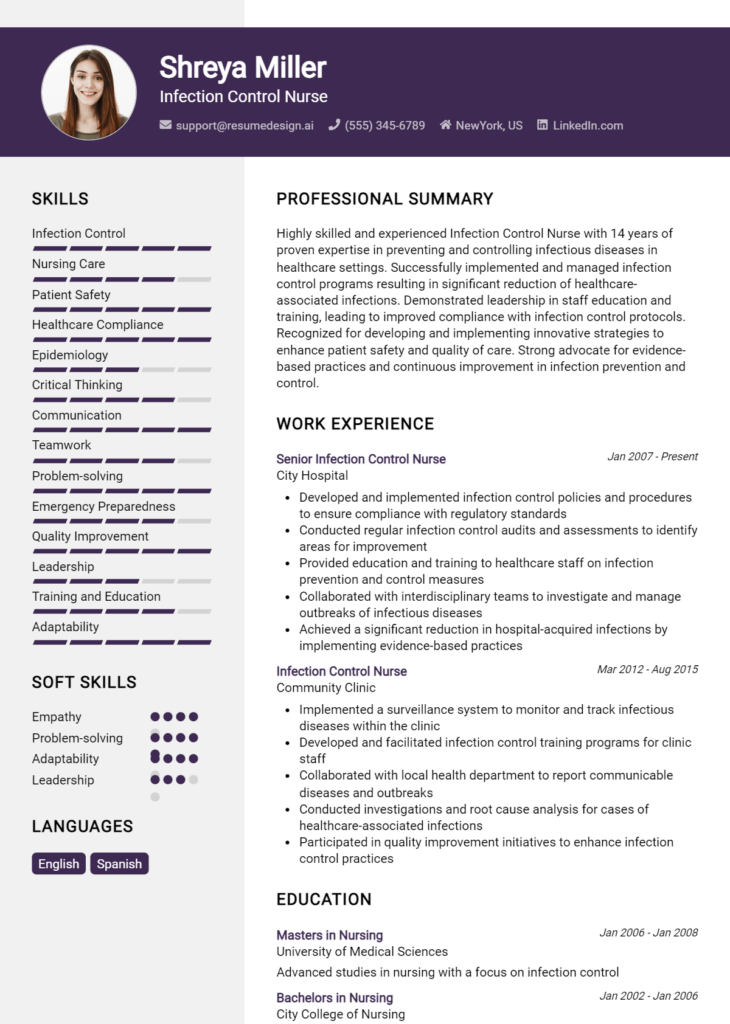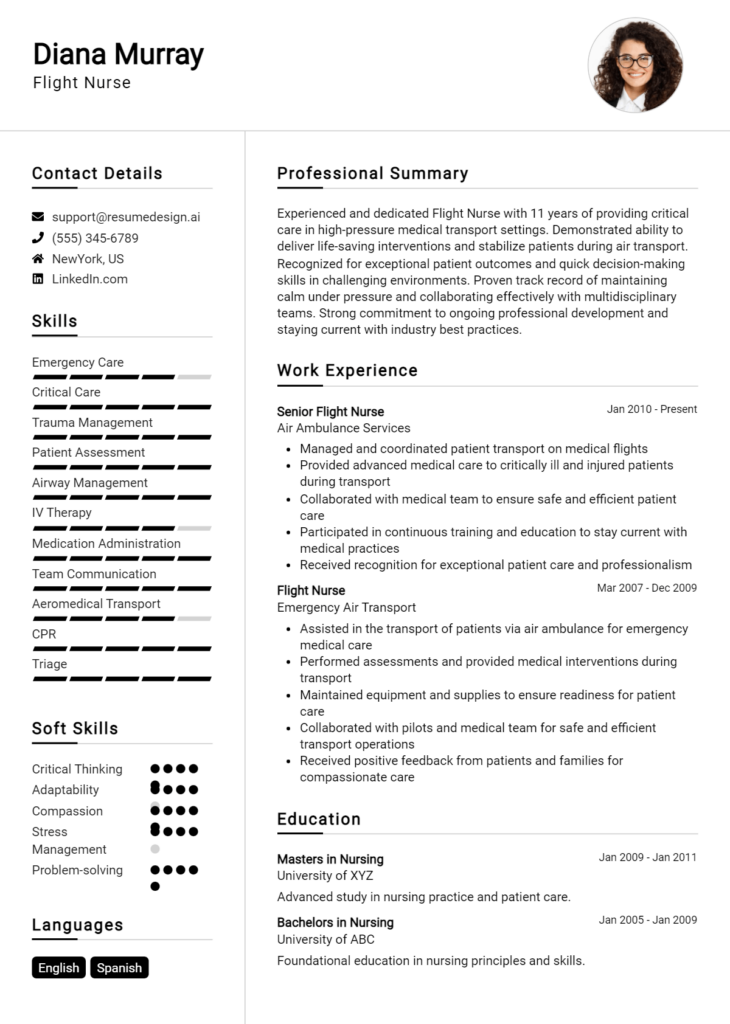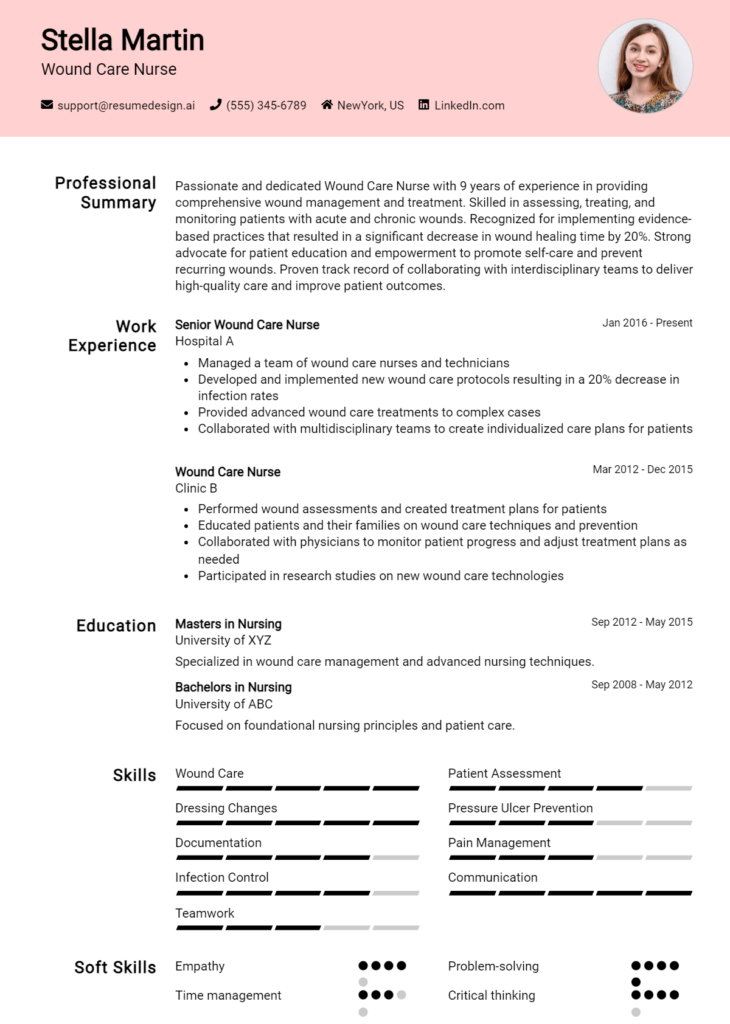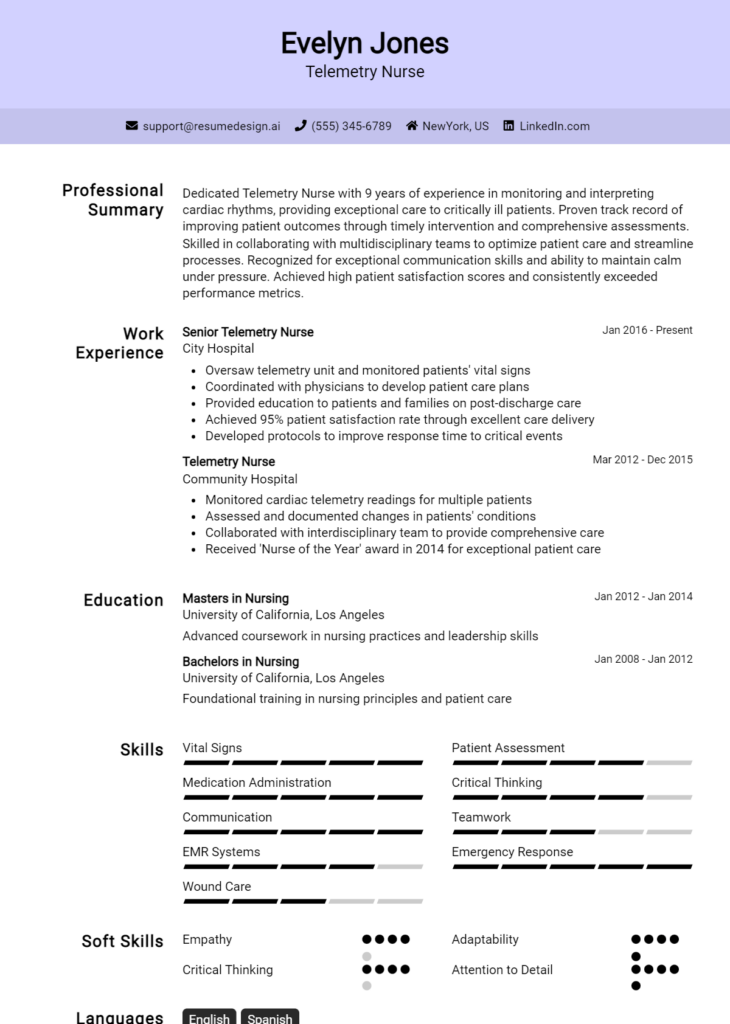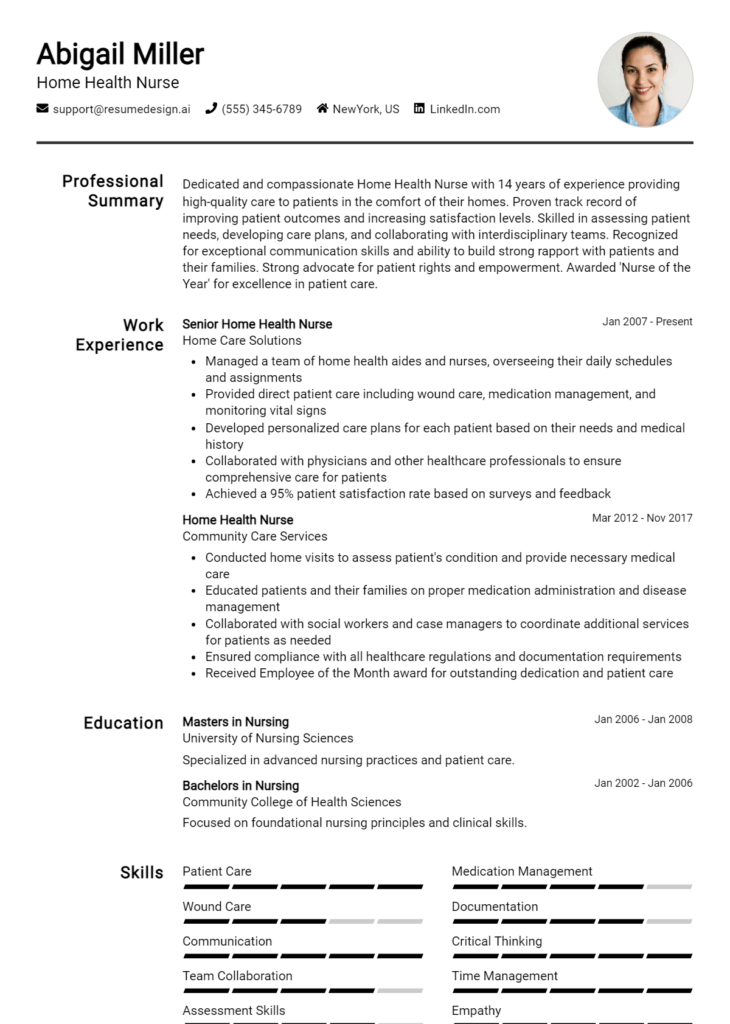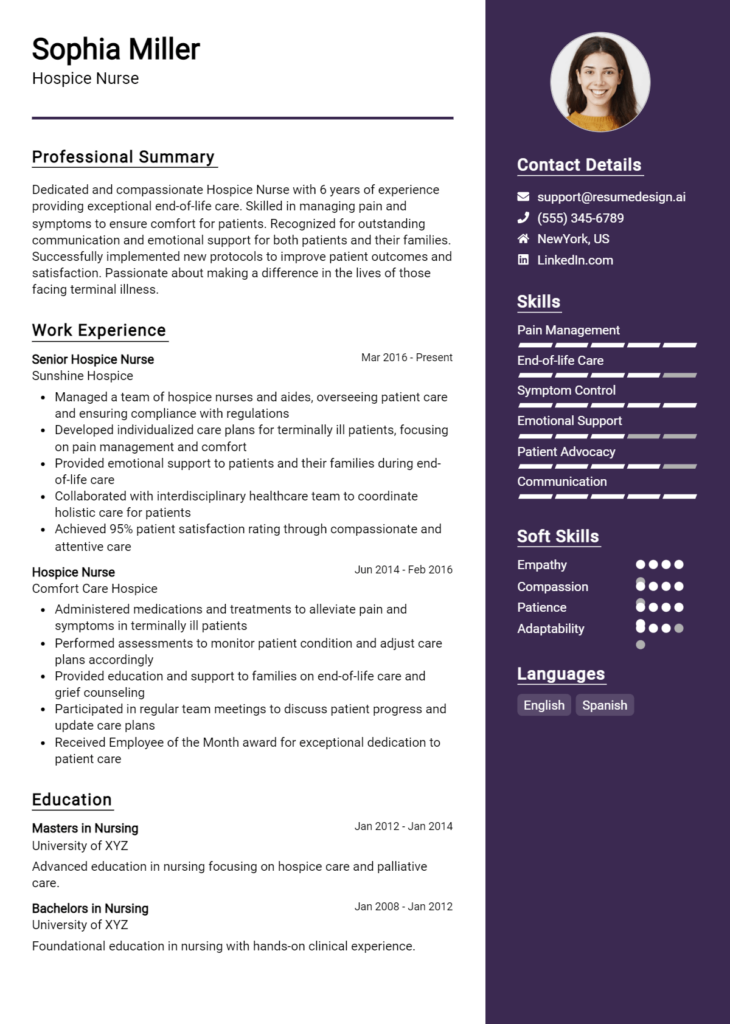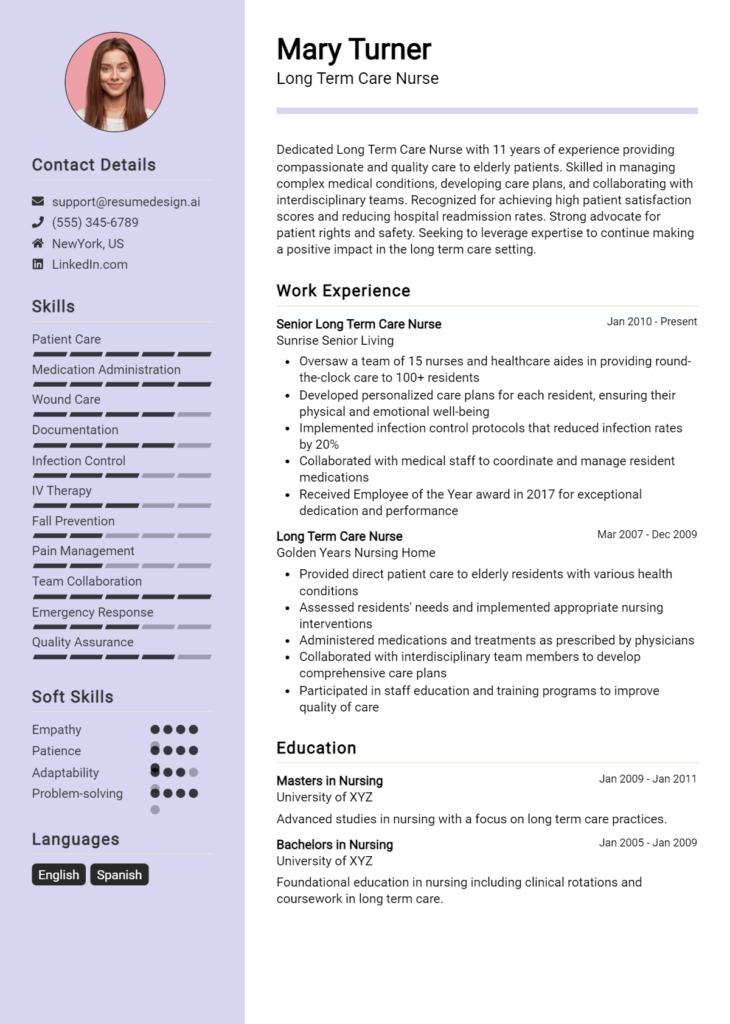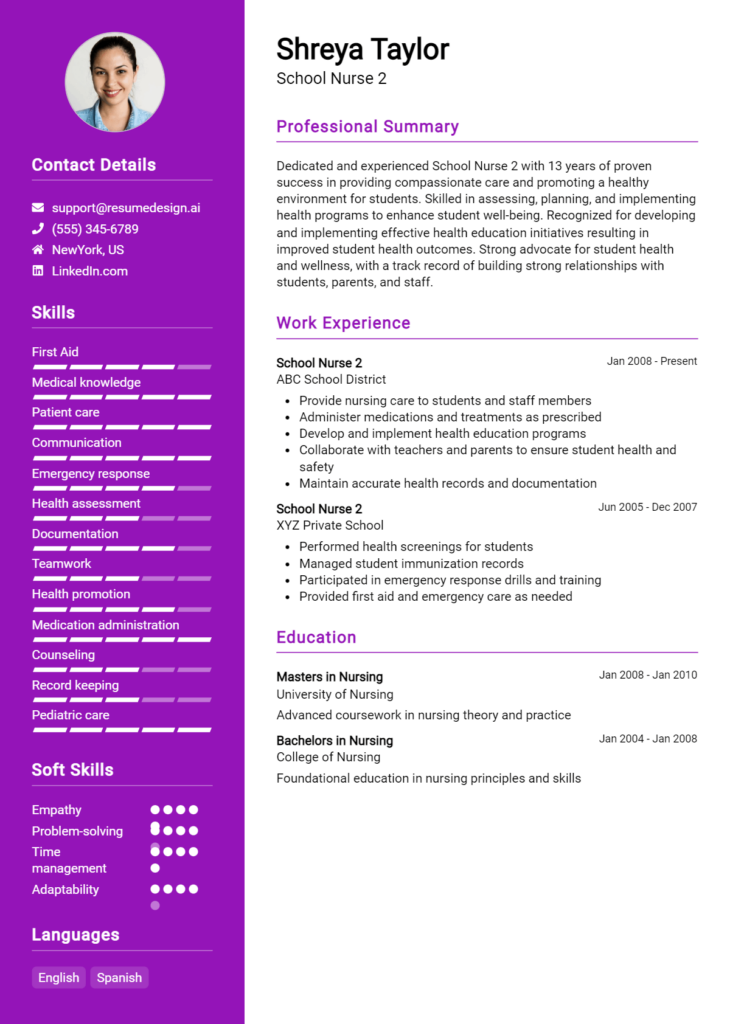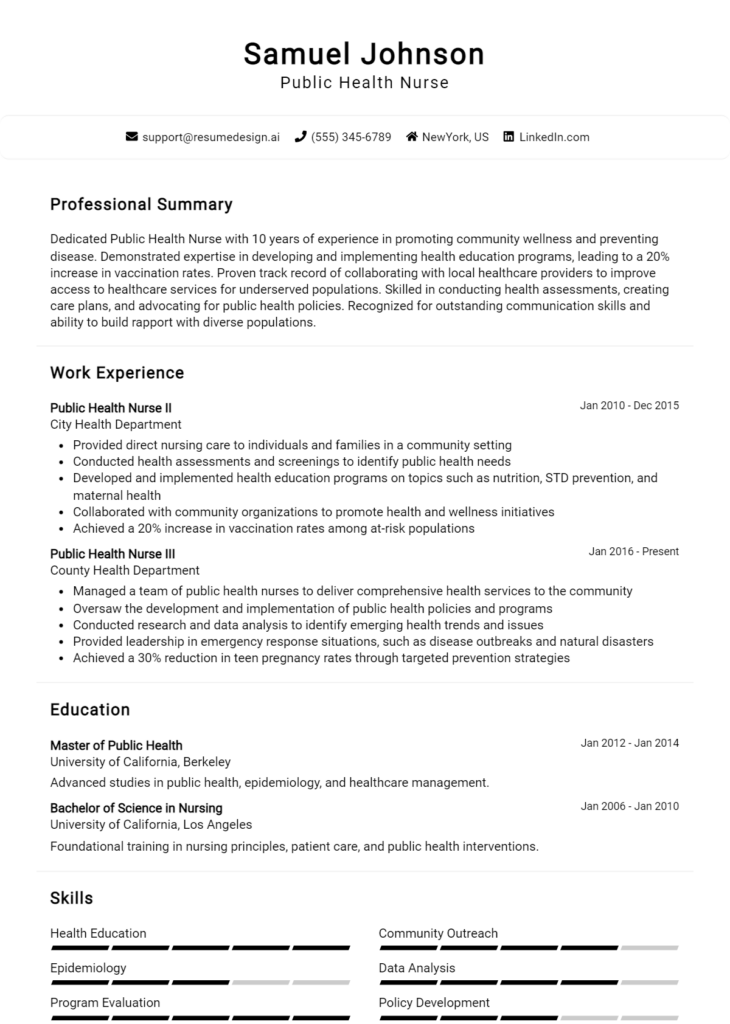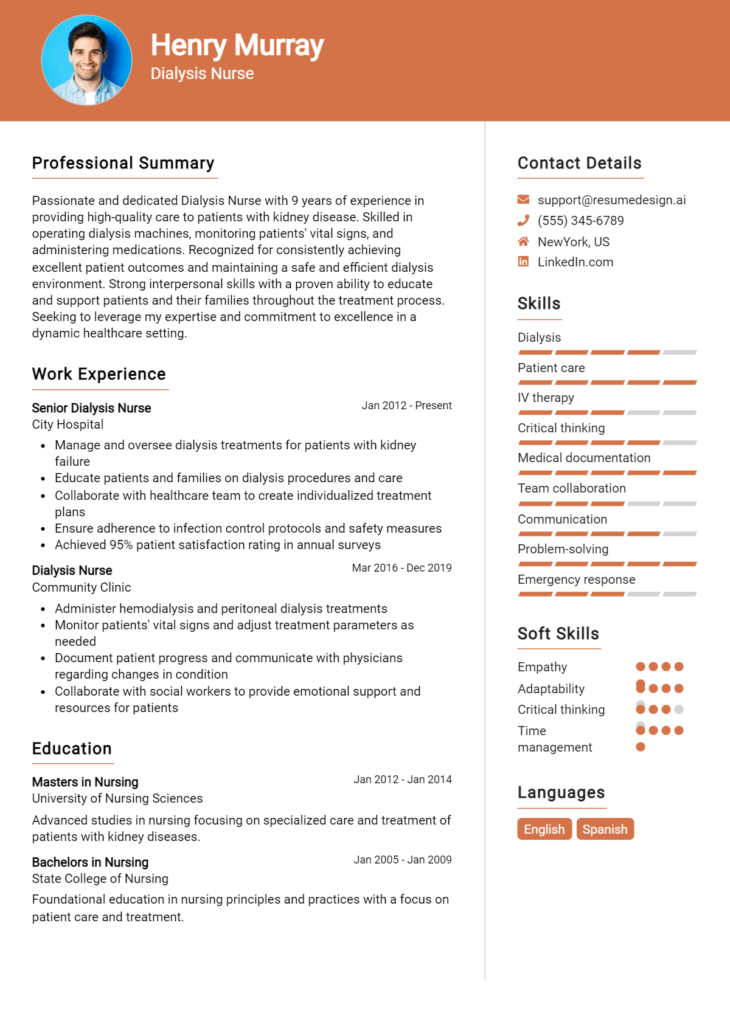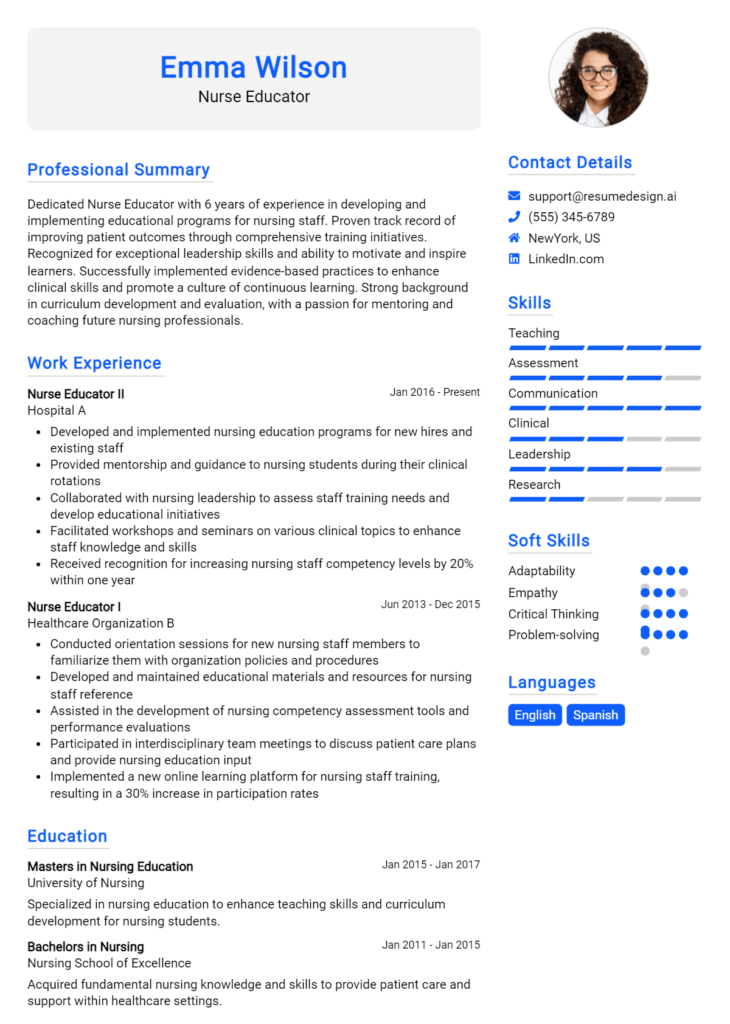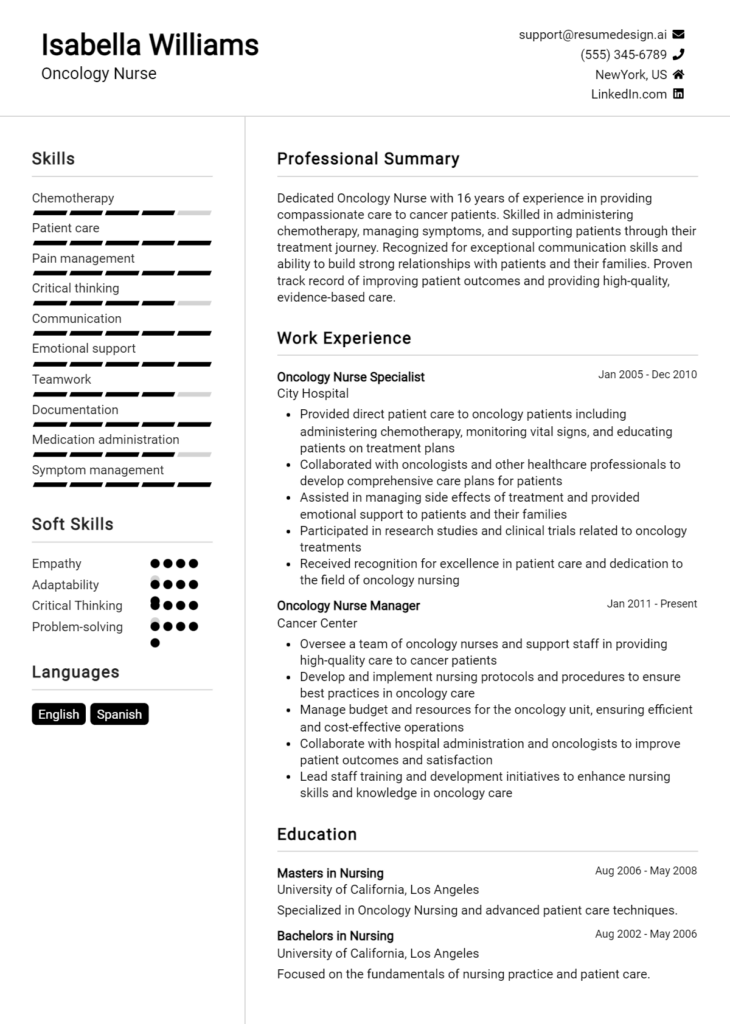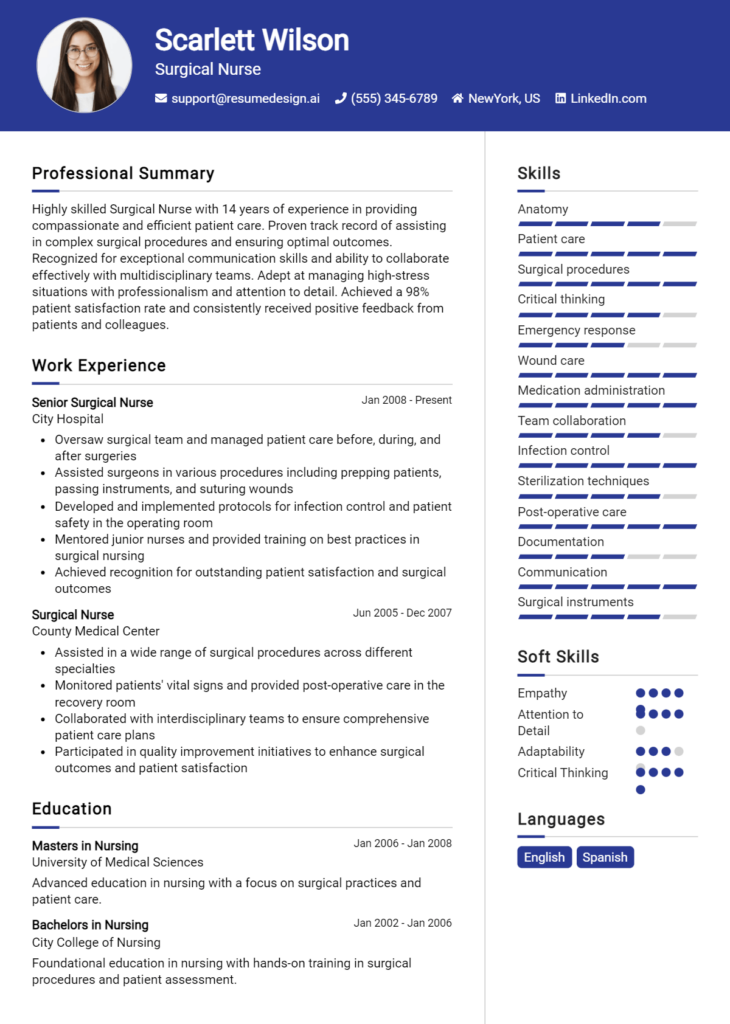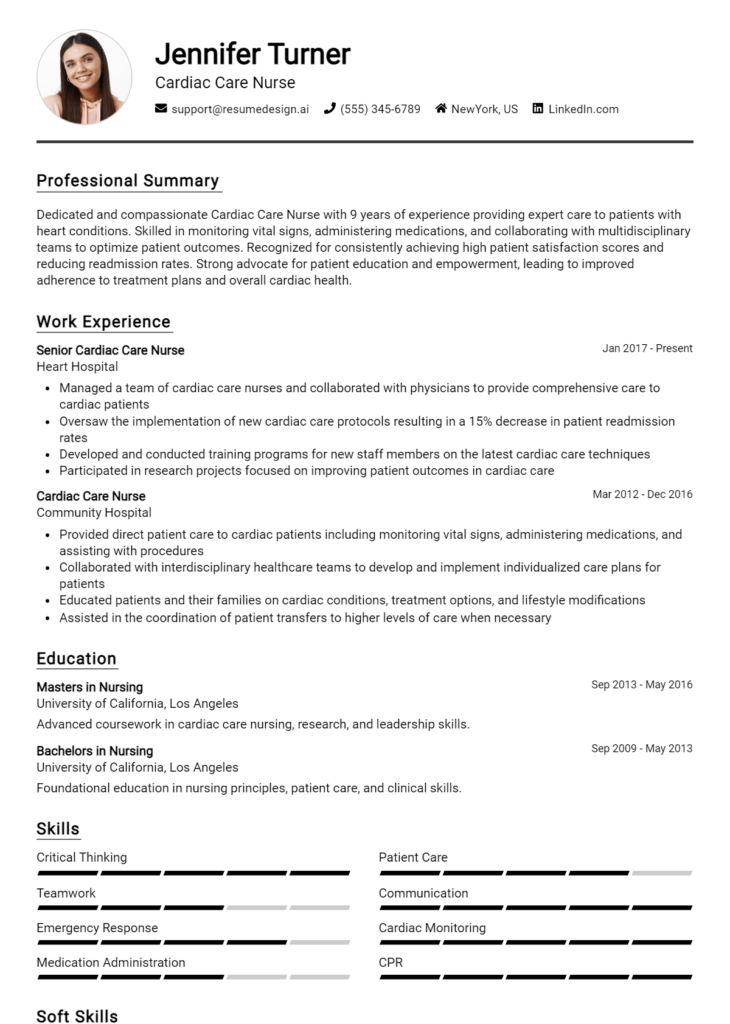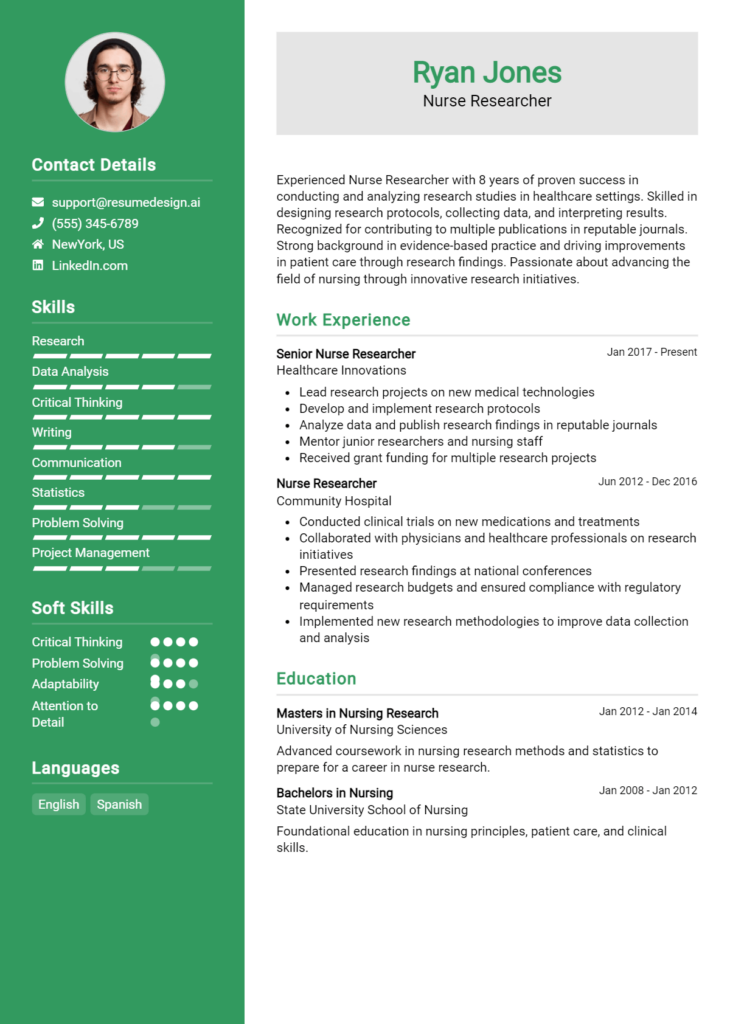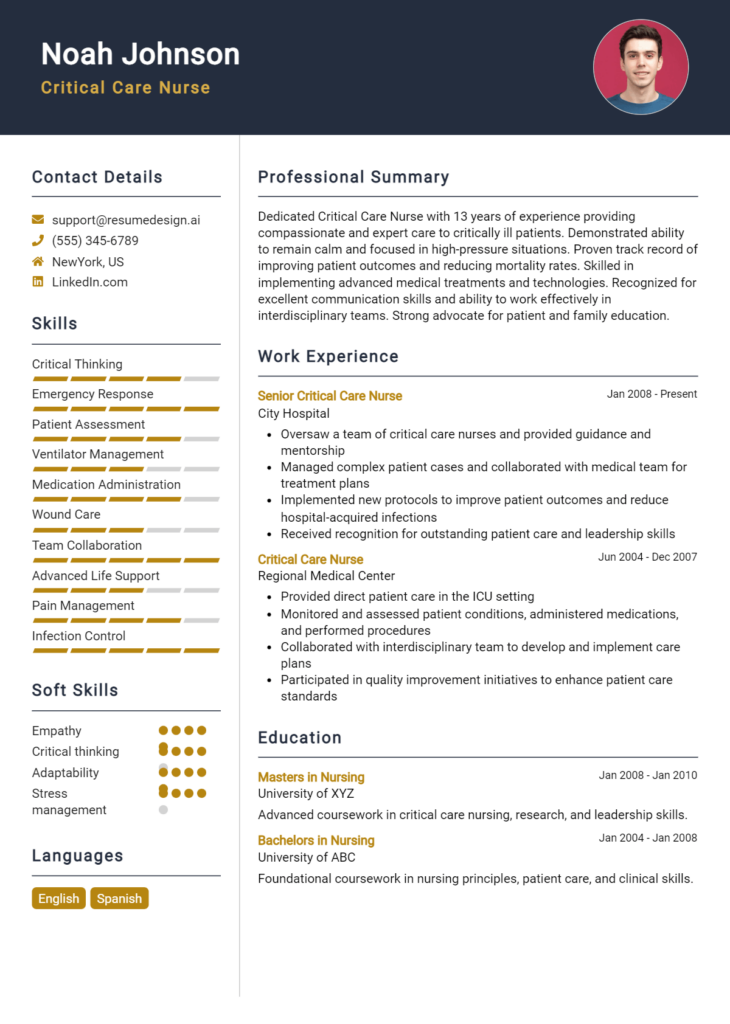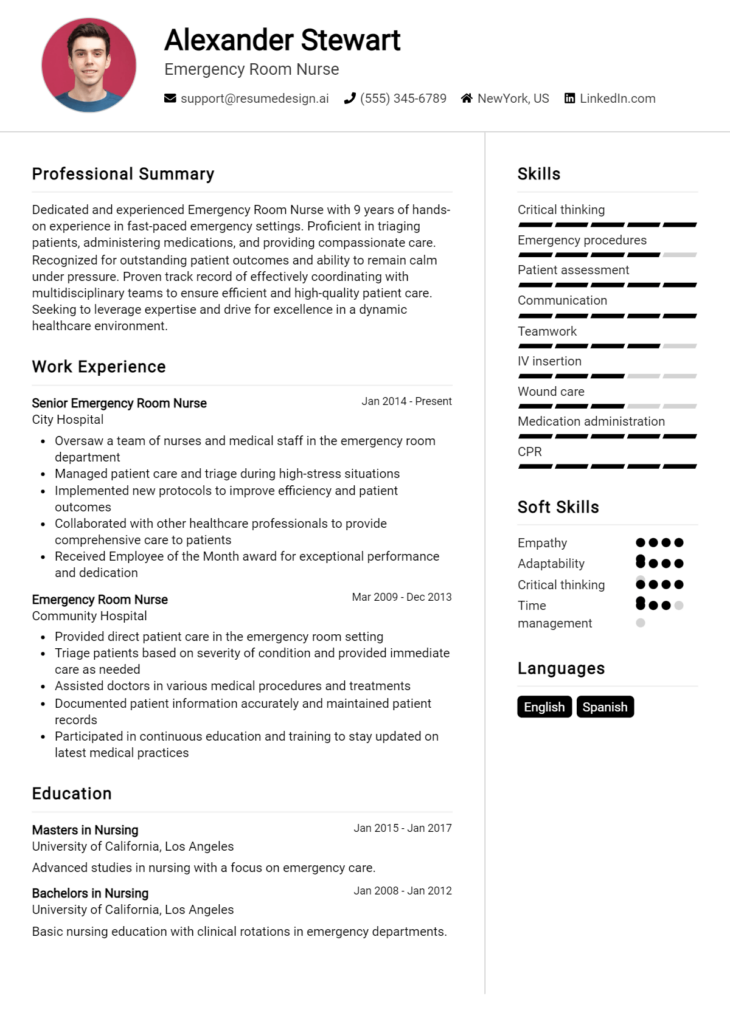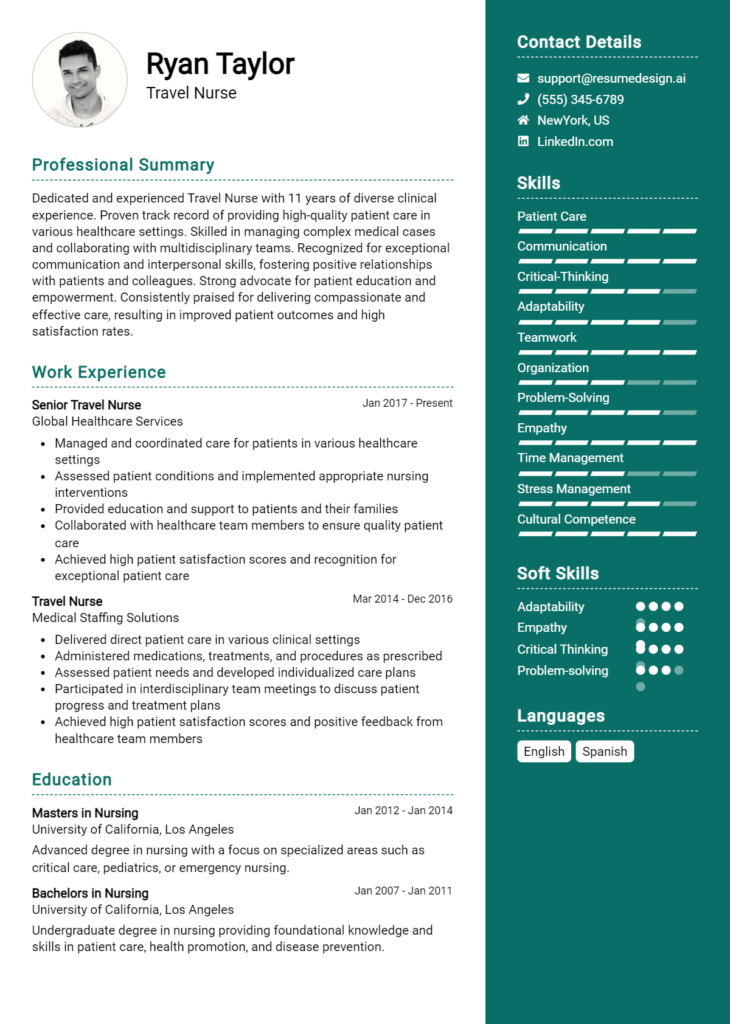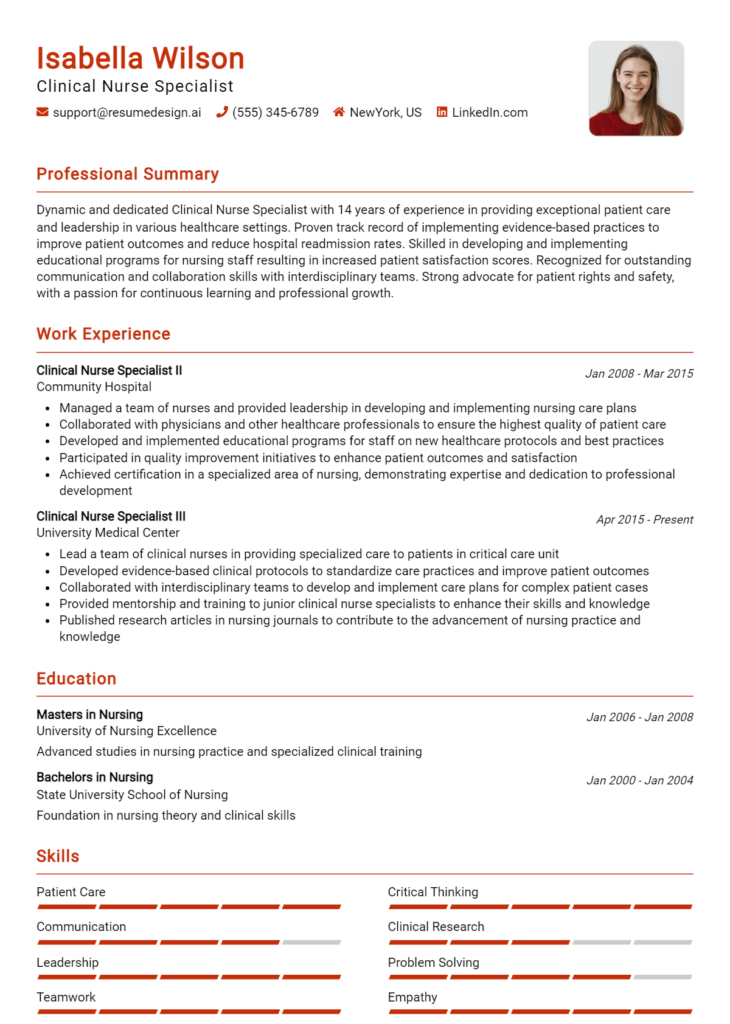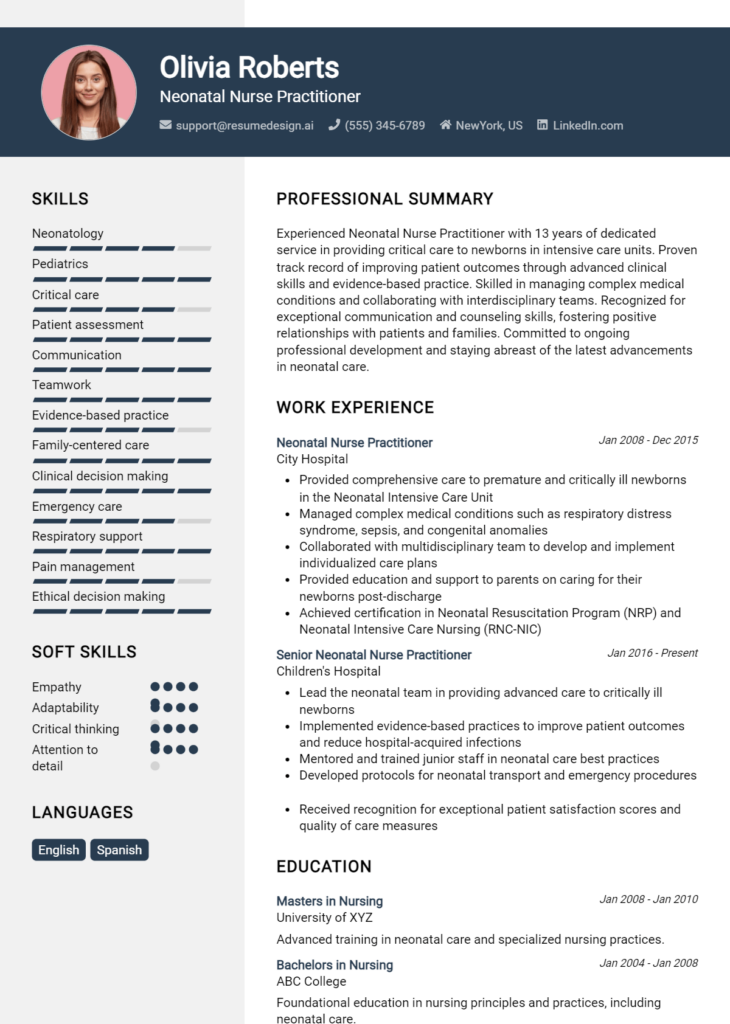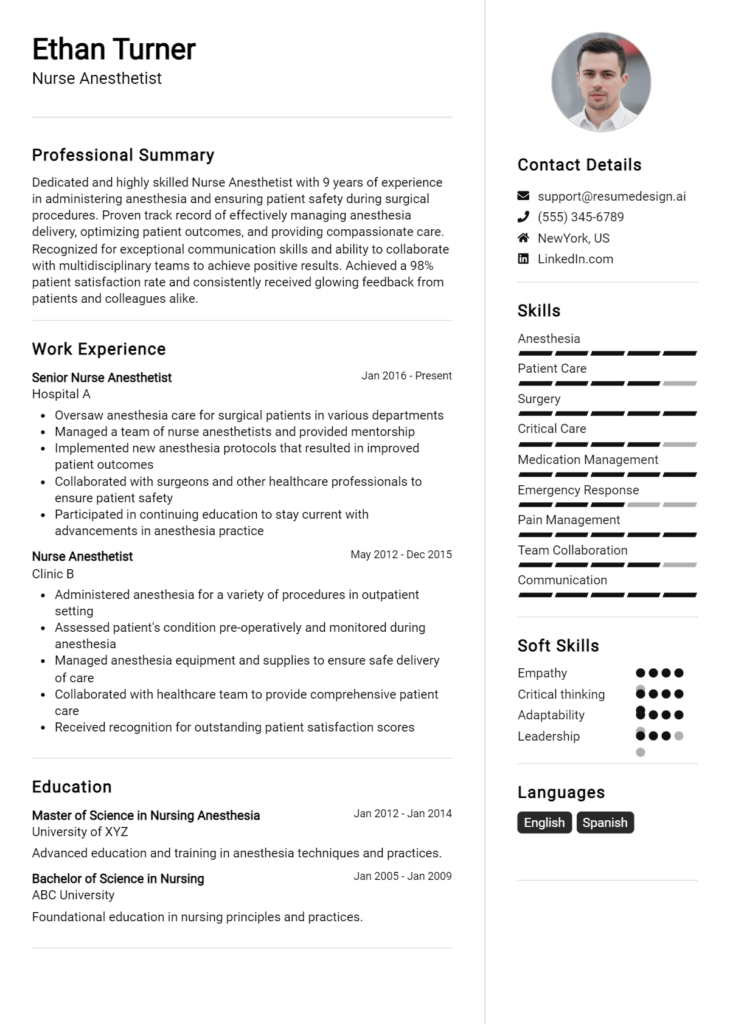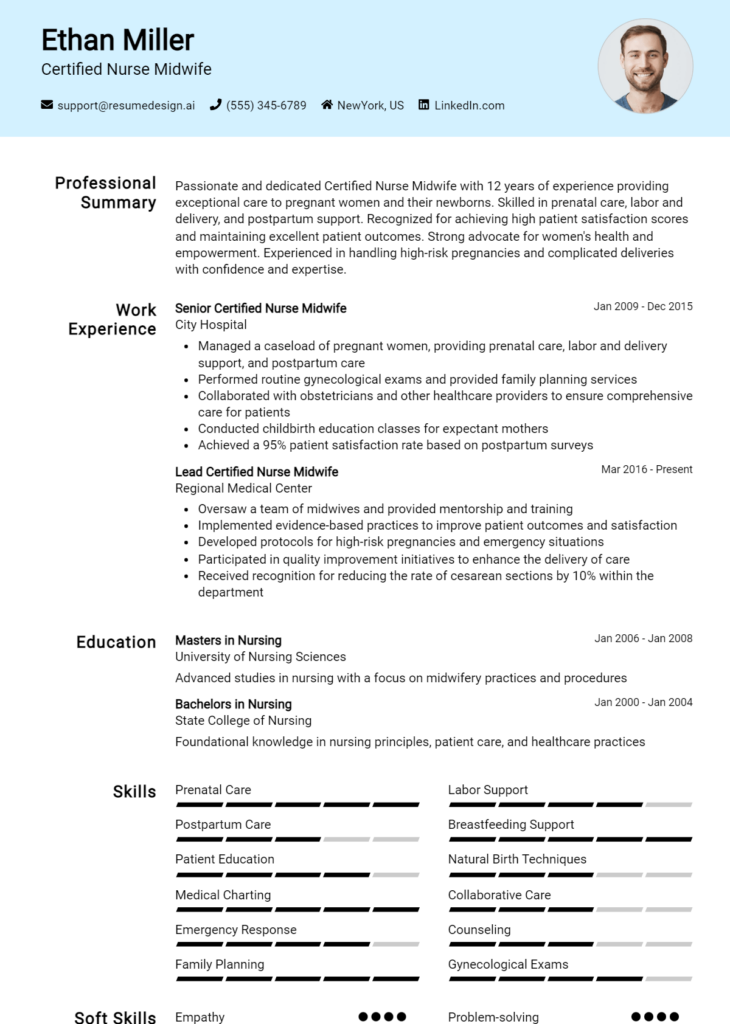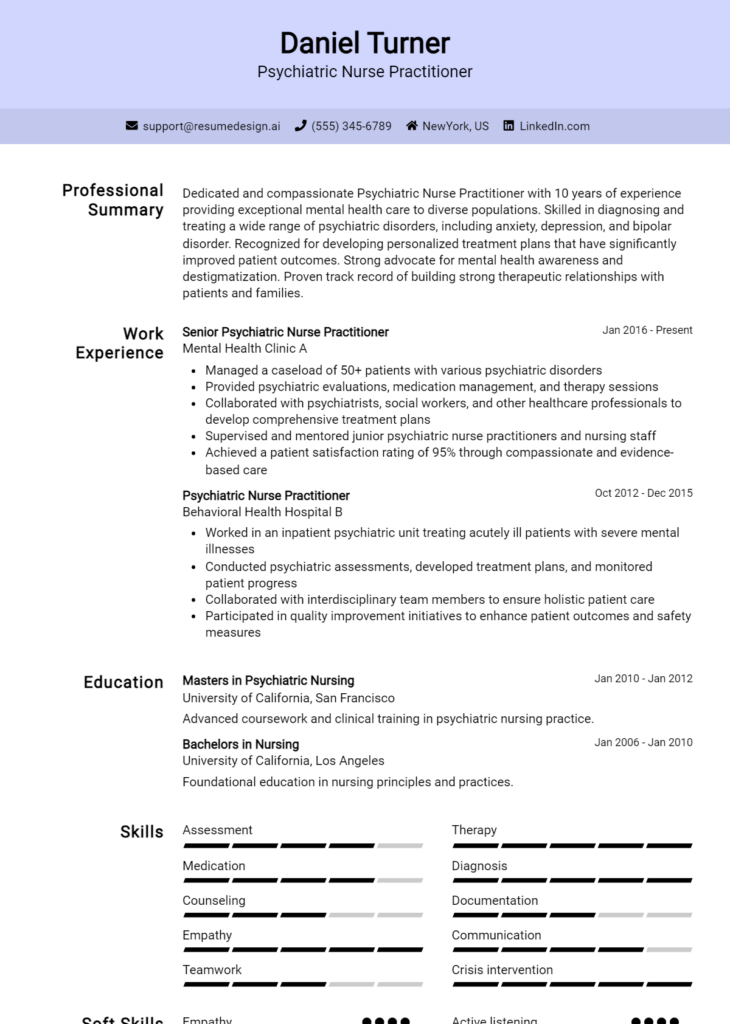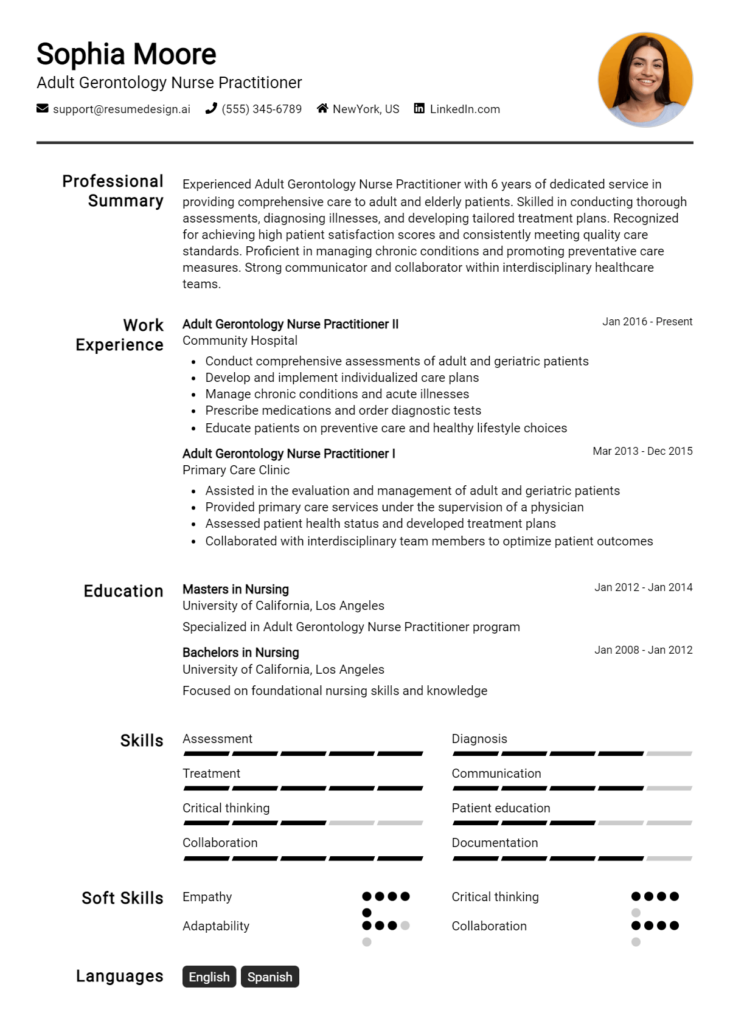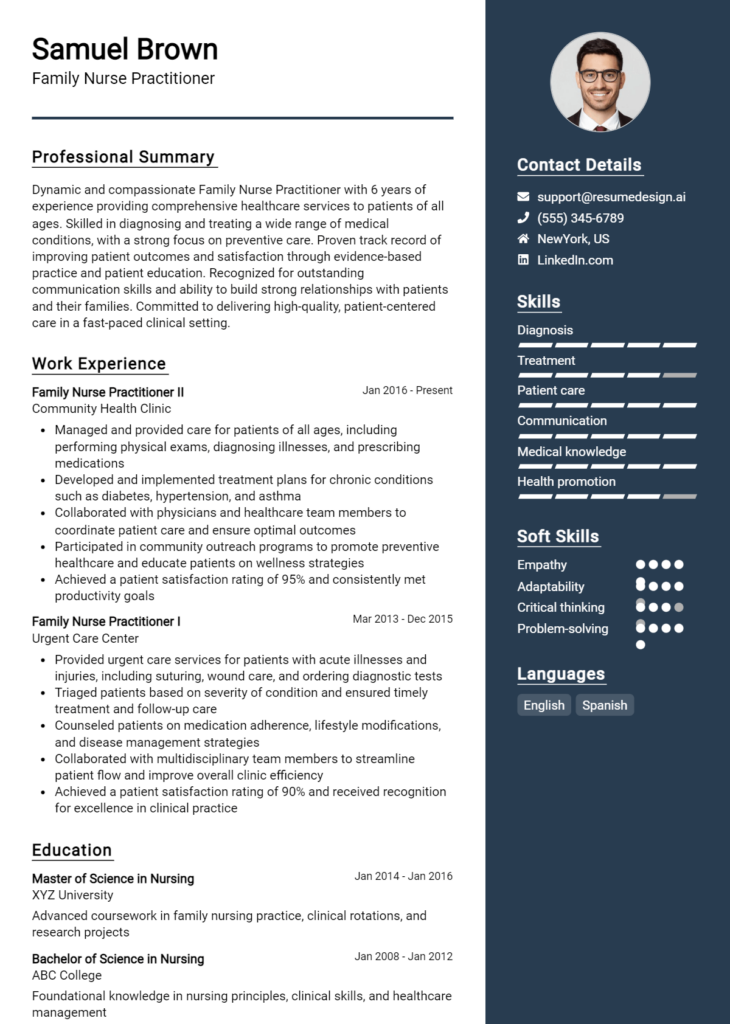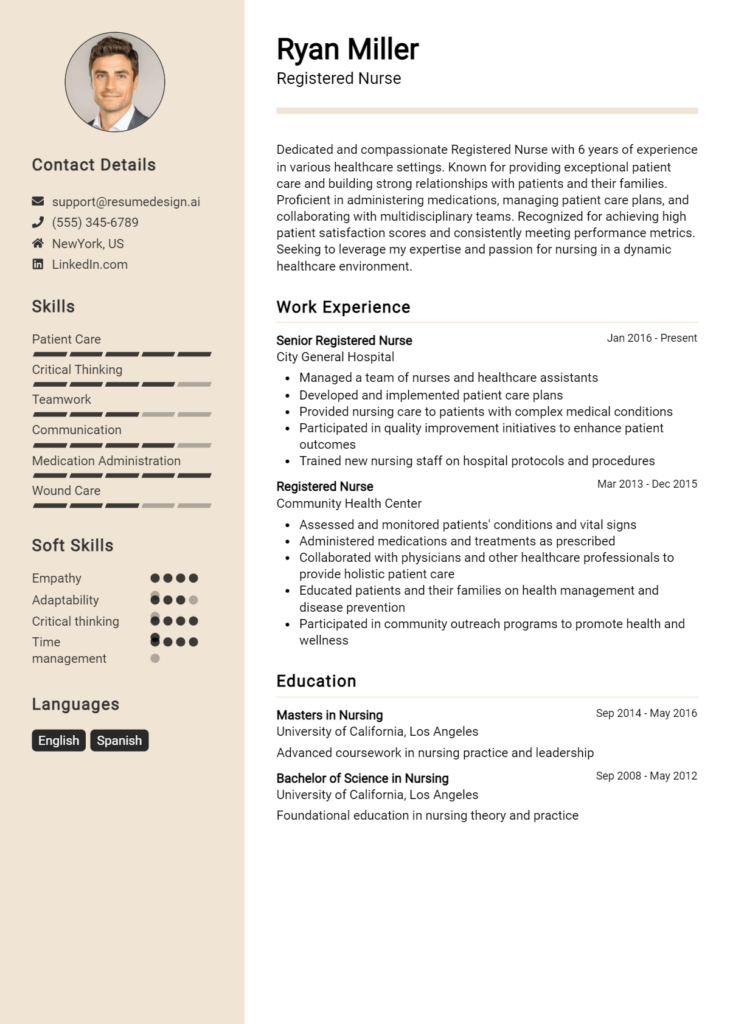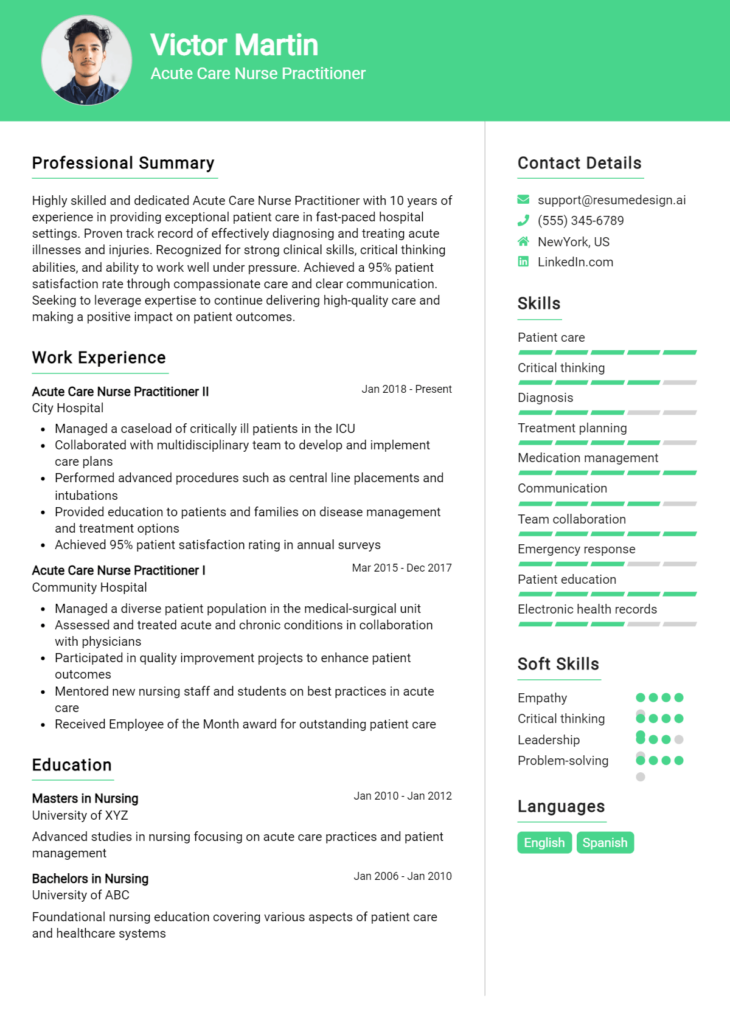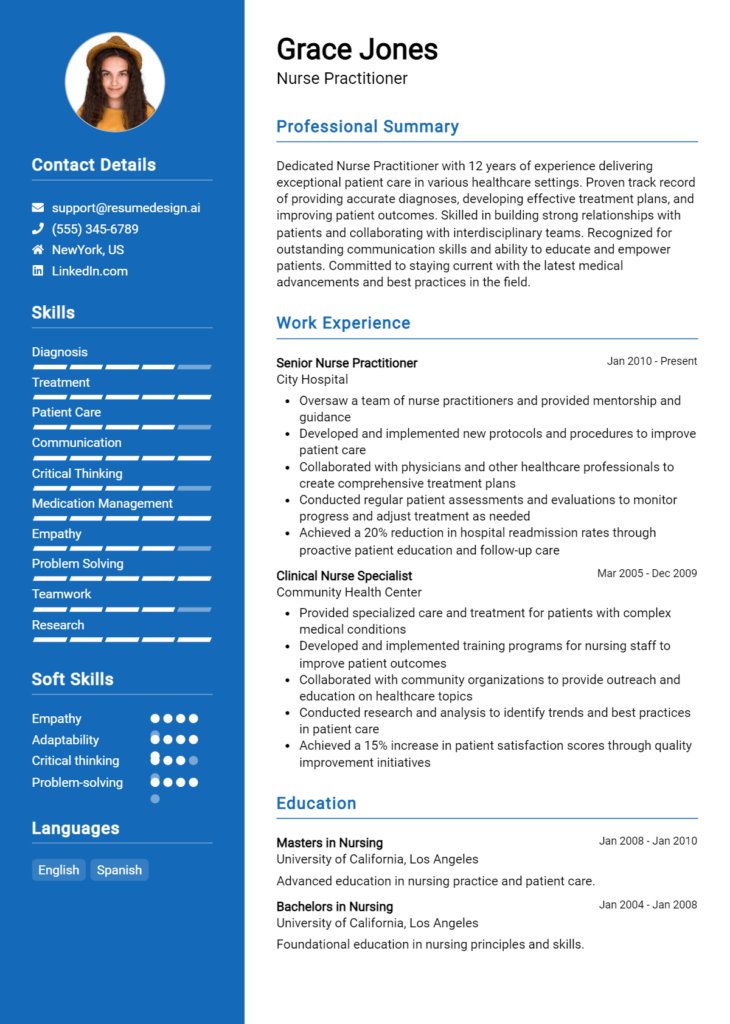Pediatric Nurse Practitioner Core Responsibilities
Pediatric Nurse Practitioners (PNPs) play a vital role in delivering comprehensive healthcare to children, bridging the gap between clinical care and operational management. Their core responsibilities include conducting assessments, diagnosing conditions, and developing treatment plans, which require strong technical knowledge and problem-solving skills. Effective communication and collaboration with various departments, from pediatrics to administration, are essential for improving patient outcomes. A well-structured resume that highlights these qualifications not only showcases their clinical expertise but also demonstrates their commitment to the organization's goals.
Common Responsibilities Listed on Pediatric Nurse Practitioner Resume
- Perform comprehensive physical examinations on pediatric patients
- Diagnose and manage acute and chronic illnesses
- Develop and implement individualized care plans
- Administer vaccinations and preventive health care
- Educate families on health maintenance and disease prevention
- Coordinate care with interdisciplinary teams
- Document patient encounters and maintain accurate records
- Provide emergency care and manage urgent health issues
- Conduct developmental screenings and assessments
- Advocate for children’s health and well-being
- Participate in quality improvement initiatives
- Stay current with pediatric healthcare trends and best practices
High-Level Resume Tips for Pediatric Nurse Practitioner Professionals
In the competitive field of pediatric nursing, a well-crafted resume serves as your first opportunity to make a lasting impression on potential employers. For Pediatric Nurse Practitioners, the resume is not just a list of jobs and qualifications; it's a reflection of your skills, achievements, and passion for providing quality care to children. It should effectively communicate your unique qualifications and demonstrate your ability to thrive in a clinical setting. This guide will provide practical and actionable resume tips specifically tailored for Pediatric Nurse Practitioner professionals, ensuring you stand out in a crowded job market.
Top Resume Tips for Pediatric Nurse Practitioner Professionals
- Tailor your resume to the job description by incorporating relevant keywords and phrases that match the specific role you are applying for.
- Highlight your clinical experience with children, including internships, previous positions, and volunteer opportunities that showcase your hands-on skills.
- Quantify your achievements by using metrics where possible, such as the number of patients treated, improved health outcomes, or successful interventions.
- Include a dedicated skills section that highlights industry-specific skills such as pediatric assessment, developmental screenings, and family counseling.
- Showcase your certifications, licenses, and specialized training relevant to pediatric nursing to demonstrate your commitment to professional development.
- Utilize action verbs to describe your responsibilities and accomplishments, making your contributions more dynamic and impactful.
- Incorporate a professional summary at the top of your resume that quickly conveys your experience and passion for pediatric nursing.
- Keep your resume concise and focused, ideally one page, while ensuring that the most important information is easy to find.
- Proofread thoroughly to eliminate typos and grammatical errors, as attention to detail is crucial in the healthcare profession.
By implementing these tips, you can significantly increase your chances of landing a job in the Pediatric Nurse Practitioner field. A polished and tailored resume that effectively showcases your skills and achievements will not only catch the attention of hiring managers but also set you apart as a qualified candidate ready to make a positive impact in the lives of children and their families.
Why Resume Headlines & Titles are Important for Pediatric Nurse Practitioner
In the competitive field of healthcare, particularly for Pediatric Nurse Practitioners (PNPs), the importance of a strong resume headline or title cannot be overstated. A well-crafted headline serves as the first impression for hiring managers, providing a quick snapshot of a candidate's qualifications and professional identity. It should succinctly convey the candidate's expertise and specialization, allowing them to stand out in a sea of applicants. A concise and relevant headline not only grabs attention but also sets the tone for the rest of the resume, making it easier for employers to recognize the candidate's fit for the role at a glance.
Best Practices for Crafting Resume Headlines for Pediatric Nurse Practitioner
- Keep it concise—limit the headline to one impactful phrase.
- Make it role-specific by including relevant keywords related to the Pediatric Nurse Practitioner position.
- Highlight key qualifications such as years of experience, areas of expertise, or certifications.
- Use action-oriented language that conveys confidence and professionalism.
- Avoid generic terms; instead, focus on unique attributes that differentiate you from other candidates.
- Consider using numbers or metrics to quantify achievements when possible.
- Tailor the headline for each job application to align with the specific requirements of the position.
- Ensure that the tone matches the professionalism expected in the healthcare industry.
Example Resume Headlines for Pediatric Nurse Practitioner
Strong Resume Headlines
Compassionate Pediatric Nurse Practitioner with 5+ Years of Experience in Acute Care Settings
Certified Pediatric Nurse Practitioner Specializing in Chronic Illness Management
Experienced Pediatric Nurse Practitioner Focused on Patient-Centered Care and Family Education
Dedicated Pediatric Nurse Practitioner with Proven Skills in Emergency Care and Pediatric Assessments
Weak Resume Headlines
Nurse Practitioner Looking for a Job
Healthcare Professional with Various Skills
Pediatric Nurse
The strong headlines are effective because they clearly communicate the candidate's specific skills, years of experience, and areas of expertise, which are directly relevant to the Pediatric Nurse Practitioner role. This targeted approach helps hiring managers quickly identify the candidate's qualifications, making it more likely that they will consider the applicant for an interview. In contrast, the weak headlines fail to impress due to their vagueness and lack of specificity; they do not provide any meaningful information about the candidate's strengths or suitability for the position, leaving hiring managers uninspired and uninterested.
Writing an Exceptional Pediatric Nurse Practitioner Resume Summary
A well-crafted resume summary is essential for a Pediatric Nurse Practitioner (PNP) as it serves as the first impression a hiring manager will have of a candidate. This brief yet powerful introduction captures attention quickly, highlighting key skills, relevant experience, and notable accomplishments that align with the specific demands of the job role. An impactful summary should be concise, providing just enough information to entice the reader to explore the rest of the resume, while being tailored to the job description to show how the candidate is a perfect fit for the position.
Best Practices for Writing a Pediatric Nurse Practitioner Resume Summary
- Quantify achievements: Use numbers and metrics to demonstrate the impact of your work.
- Focus on relevant skills: Highlight specific skills that are directly applicable to the role.
- Tailor for the job description: Customize your summary to reflect the qualifications and requirements outlined in the job posting.
- Keep it concise: Aim for 2-4 sentences that convey your qualifications clearly and succinctly.
- Use action verbs: Start sentences with strong action verbs to convey a sense of proactivity and accomplishment.
- Showcase certifications: Mention relevant certifications and training that enhance your candidacy.
- Highlight experience with specific populations: If applicable, emphasize your work with children of various ages or specific health conditions.
- Include a personal touch: A brief mention of your passion for pediatric nursing can make your summary more relatable and memorable.
Example Pediatric Nurse Practitioner Resume Summaries
Strong Resume Summaries
Compassionate Pediatric Nurse Practitioner with over 5 years of experience in managing chronic illnesses and providing comprehensive care for children aged 0-18. Skilled in patient assessment and developing tailored treatment plans, resulting in a 30% improvement in patient compliance and satisfaction scores.
Dedicated Pediatric Nurse Practitioner with a proven track record of delivering exceptional healthcare services in a fast-paced clinic environment. Successfully reduced emergency room visits by 25% through proactive management of pediatric asthma cases and enhanced patient education programs.
Certified Pediatric Nurse Practitioner with expertise in developmental screenings and preventive care. Achieved a 40% increase in early diagnosis of developmental delays through targeted community outreach initiatives and collaboration with local schools.
Weak Resume Summaries
Experienced nurse looking for a Pediatric Nurse Practitioner position. I have worked with children and am passionate about healthcare.
Pediatric Nurse Practitioner with some experience. I want to help kids and work in a healthcare setting.
The strong resume summaries are effective because they provide specific examples of achievements and skills while quantifying the impact of the candidate's work in measurable terms. They are tailored to the job and illustrate a clear connection between the candidate's experience and the needs of the employer. In contrast, the weak summaries lack detail and specificity, offering no quantifiable results or insights into the candidate's capabilities, making them less compelling to hiring managers.
Work Experience Section for Pediatric Nurse Practitioner Resume
The work experience section of a Pediatric Nurse Practitioner resume is vital as it provides a comprehensive overview of the candidate's practical skills and real-world applications of their knowledge. This section not only highlights technical expertise, such as proficiency in pediatric assessments and treatment protocols but also demonstrates the ability to manage teams and collaborate with multidisciplinary groups to deliver high-quality care. By quantifying achievements and aligning experiences with industry standards, candidates can effectively showcase their contributions and readiness to excel in a pediatric healthcare environment.
Best Practices for Pediatric Nurse Practitioner Work Experience
- Highlight specific technical skills relevant to pediatric care, such as immunization administration or developmental screenings.
- Quantify achievements using metrics, such as percentage improvements in patient outcomes or reductions in wait times.
- Emphasize leadership roles, including team management and training responsibilities.
- Detail collaborative efforts with other healthcare professionals, illustrating teamwork in patient care.
- Use action verbs to describe responsibilities and achievements for a more dynamic presentation.
- Tailor experiences to align with job descriptions and requirements in the pediatric nursing field.
- Include volunteer work or internships that demonstrate commitment and passion for pediatric healthcare.
- Showcase continuing education and certifications that enhance technical expertise in pediatric care.
Example Work Experiences for Pediatric Nurse Practitioner
Strong Experiences
- Led a pediatric immunization initiative that increased vaccination rates by 30% within one year, significantly improving community health outcomes.
- Collaborated with a multidisciplinary team to develop a new care protocol for managing pediatric asthma, resulting in a 25% decrease in emergency room visits.
- Conducted over 500 comprehensive health assessments for children aged 0-18, achieving a 95% patient satisfaction rate based on feedback surveys.
- Managed a team of 5 nurses in a busy pediatric clinic, streamlining workflows that reduced patient wait times by 15% and improved care delivery.
Weak Experiences
- Worked in a clinic and assisted with various tasks related to patient care.
- Helped with immunizations and participated in patient education.
- Provided care for children in a general setting.
- Responsible for managing some patients and their records.
The examples listed as strong experiences are considered effective because they emphasize quantifiable results, specific technical skills, and leadership roles, demonstrating a clear impact on patient care and outcomes. In contrast, the weak experiences lack detail and measurable achievements, making them less compelling and failing to illustrate the candidate's true capabilities and contributions in the field of pediatric nursing.
Education and Certifications Section for Pediatric Nurse Practitioner Resume
The education and certifications section of a Pediatric Nurse Practitioner resume is crucial for showcasing a candidate's academic achievements and professional qualifications. This section not only highlights the candidate's foundational knowledge and clinical skills but also emphasizes their commitment to ongoing education and professional development. By detailing relevant coursework, specialized training, and industry-recognized certifications, candidates enhance their credibility and demonstrate their alignment with the specific requirements of the Pediatric Nurse Practitioner role. A well-structured education and certifications section can significantly influence hiring managers and set candidates apart in a competitive job market.
Best Practices for Pediatric Nurse Practitioner Education and Certifications
- Include degrees and certifications relevant to pediatric nursing, such as a Master's in Nursing with a Pediatric Nurse Practitioner focus.
- List any advanced certifications, such as Pediatric Advanced Life Support (PALS) or Neonatal Resuscitation Program (NRP).
- Detail any specialized training that enhances your skills, such as workshops on pediatric pharmacology or child development.
- Use clear and concise formatting to make the information easily accessible to hiring managers.
- Prioritize the most relevant and recent educational experiences to reflect current knowledge in the field.
- Highlight any continuing education courses that demonstrate a commitment to staying updated with industry standards.
- Include honors or recognitions received during your education, which can add to your credibility.
- Ensure that all listed credentials are current and valid to maintain professionalism.
Example Education and Certifications for Pediatric Nurse Practitioner
Strong Examples
- Master of Science in Nursing (MSN) with Pediatric Nurse Practitioner concentration, University of XYZ, 2022
- Pediatric Nurse Practitioner Certification (PNP-BC), American Nurses Credentialing Center, 2023
- Pediatric Advanced Life Support (PALS) Certification, American Heart Association, valid through 2025
- Clinical Pediatric Pharmacology Course, completed at ABC Institute, 2023
Weak Examples
- Bachelor's Degree in Biology, University of ABC, 2018 (not directly related to nursing)
- Certified Nursing Assistant (CNA), expired 2020
- Basic Life Support (BLS) Certification, obtained in 2015
- Online course in General Health, completed in 2019 (not specialized for pediatrics)
The strong examples are considered effective because they directly relate to the Pediatric Nurse Practitioner role, showcasing relevant degrees, certifications, and specialized training that enhance clinical competencies. In contrast, the weak examples fail to align with the specific requirements of pediatric nursing or are outdated, which can diminish the candidate's appeal to potential employers.
Top Skills & Keywords for Pediatric Nurse Practitioner Resume
In the competitive field of pediatric nursing, a well-crafted resume is essential for showcasing your qualifications and securing the desired position. Skills play a critical role in articulating your capabilities and demonstrating your proficiency in providing high-quality care to children. A strong combination of both hard and soft skills can significantly enhance your candidacy, as they reflect not only your clinical expertise but also your ability to communicate effectively and empathize with young patients and their families. Highlighting these skills in your Pediatric Nurse Practitioner resume can set you apart from other applicants and convey your readiness to handle the diverse challenges of this rewarding profession.
Top Hard & Soft Skills for Pediatric Nurse Practitioner
Soft Skills
- Empathy
- Communication
- Teamwork
- Adaptability
- Problem-solving
- Time management
- Attention to detail
- Patience
- Conflict resolution
- Cultural competence
- Advocacy
- Critical thinking
- Interpersonal skills
- Active listening
- Compassion
- Decision-making
- Resilience
Hard Skills
- Pediatric assessment
- Immunization administration
- Chronic disease management
- Pediatric pharmacology
- Health education and promotion
- Emergency care procedures
- Electronic health record (EHR) management
- Diagnostic testing interpretation
- Family-centered care
- Pediatric physical examination
- Basic life support (BLS) certification
- Advanced cardiac life support (ACLS) certification
- Clinical documentation
- Developmental milestone assessment
- Health policy knowledge
- Infection control practices
- Research and evidence-based practice
For more information on how to effectively convey your skills and work experience, consider exploring additional resources that can help enhance your resume and improve your job prospects.
Stand Out with a Winning Pediatric Nurse Practitioner Cover Letter
Dear Hiring Manager,
I am writing to express my interest in the Pediatric Nurse Practitioner position at [Hospital/Clinic Name] as advertised on [where you found the job posting]. With a Master of Science in Nursing and over five years of hands-on experience in pediatric care, I am excited about the opportunity to contribute to your team and provide exceptional healthcare to children and their families. My background in both clinical practice and family-centered care aligns well with the values of [Hospital/Clinic Name], and I am eager to bring my skills in assessment, diagnosis, and treatment to your esteemed facility.
In my current role at [Current Employer], I have successfully managed a diverse patient population, conducting comprehensive assessments and developing individualized care plans that address the unique needs of each child. I have a proven track record of collaborating with multidisciplinary teams to deliver holistic care, as well as providing education and support to families navigating complex health issues. My commitment to patient advocacy ensures that I prioritize the well-being and comfort of my young patients while fostering a trusting environment where families feel empowered to participate in their child's healthcare journey.
I am particularly drawn to [Hospital/Clinic Name] because of its commitment to community outreach and pediatric wellness initiatives. I am eager to contribute my expertise in preventive care and health promotion to support your mission. I am also enthusiastic about the opportunity to engage with families and educate them on critical health topics, further promoting a culture of health and wellness in our community. I believe that my proactive approach, combined with my compassionate nature, will allow me to excel in this role and make a positive impact on the lives of children and their families.
Thank you for considering my application. I look forward to the opportunity to discuss how my skills and experiences align with the needs of your team at [Hospital/Clinic Name]. I am excited about the possibility of contributing to the excellent care provided at your facility and am eager to bring my dedication to pediatric healthcare to your organization.
Sincerely,
[Your Name]
[Your Contact Information]
[Your LinkedIn Profile or Professional Website]
Common Mistakes to Avoid in a Pediatric Nurse Practitioner Resume
Creating a compelling resume is essential for Pediatric Nurse Practitioners (PNPs) looking to stand out in a competitive job market. However, many candidates inadvertently make common mistakes that can hinder their chances of securing an interview. Understanding these pitfalls can help you craft a more effective resume that showcases your skills and experience. Here are some common mistakes to avoid:
Generic Objective Statement: Using a vague or generic objective that doesn’t specifically relate to pediatric nursing can dilute your resume's impact. Tailor your objective to align with the specific role you're applying for.
Lack of Quantifiable Achievements: Failing to include quantifiable achievements can make your resume less impactful. Instead of simply stating responsibilities, use metrics to demonstrate your contributions, such as "Improved patient follow-up compliance by 30%."
Overloading with Medical Jargon: While medical terminology is important, using excessive jargon can alienate hiring managers who may not have a clinical background. Aim for clarity and simplicity to ensure your resume is accessible to all readers.
Ignoring Formatting Consistency: Inconsistent formatting, such as varying font sizes or styles, can make your resume look unprofessional. Stick to a clean, consistent layout for a polished appearance.
Omitting Relevant Skills: Neglecting to include essential pediatric nursing skills can be a missed opportunity. Ensure you highlight both clinical and soft skills relevant to the PNP role, such as patient assessment and communication.
Lengthy Descriptions: Providing overly long descriptions for each role can overwhelm the reader. Aim for concise bullet points that effectively summarize your responsibilities and accomplishments.
Not Tailoring Each Application: Sending out a one-size-fits-all resume can be detrimental. Customize your resume for each position by incorporating keywords from the job description and emphasizing relevant experiences.
Neglecting Continuing Education: Failing to mention ongoing education or certifications can suggest a lack of commitment to professional development. Always include relevant courses, conferences, or certifications to demonstrate your dedication to the field.
Conclusion
As a Pediatric Nurse Practitioner, your role is crucial in providing specialized care to children and adolescents, focusing on their physical, emotional, and developmental health. This article outlined the key responsibilities of a Pediatric Nurse Practitioner, which include conducting health assessments, diagnosing and treating illnesses, managing patient care plans, and working collaboratively with families and healthcare teams.
Additionally, it emphasized the importance of staying updated with the latest pediatric healthcare practices and regulations, as well as pursuing continuing education opportunities to advance your skills and knowledge.
To ensure you stand out in the competitive job market, it’s essential to have a well-crafted resume that highlights your qualifications and experiences effectively. Take a moment to review your Pediatric Nurse Practitioner resume and consider utilizing various resources available to enhance its quality. Tools such as resume templates, resume builder, resume examples, and cover letter templates can provide you with the support you need to create a compelling application that resonates with potential employers. Don’t miss the opportunity to make a strong impression—revise your resume today!

